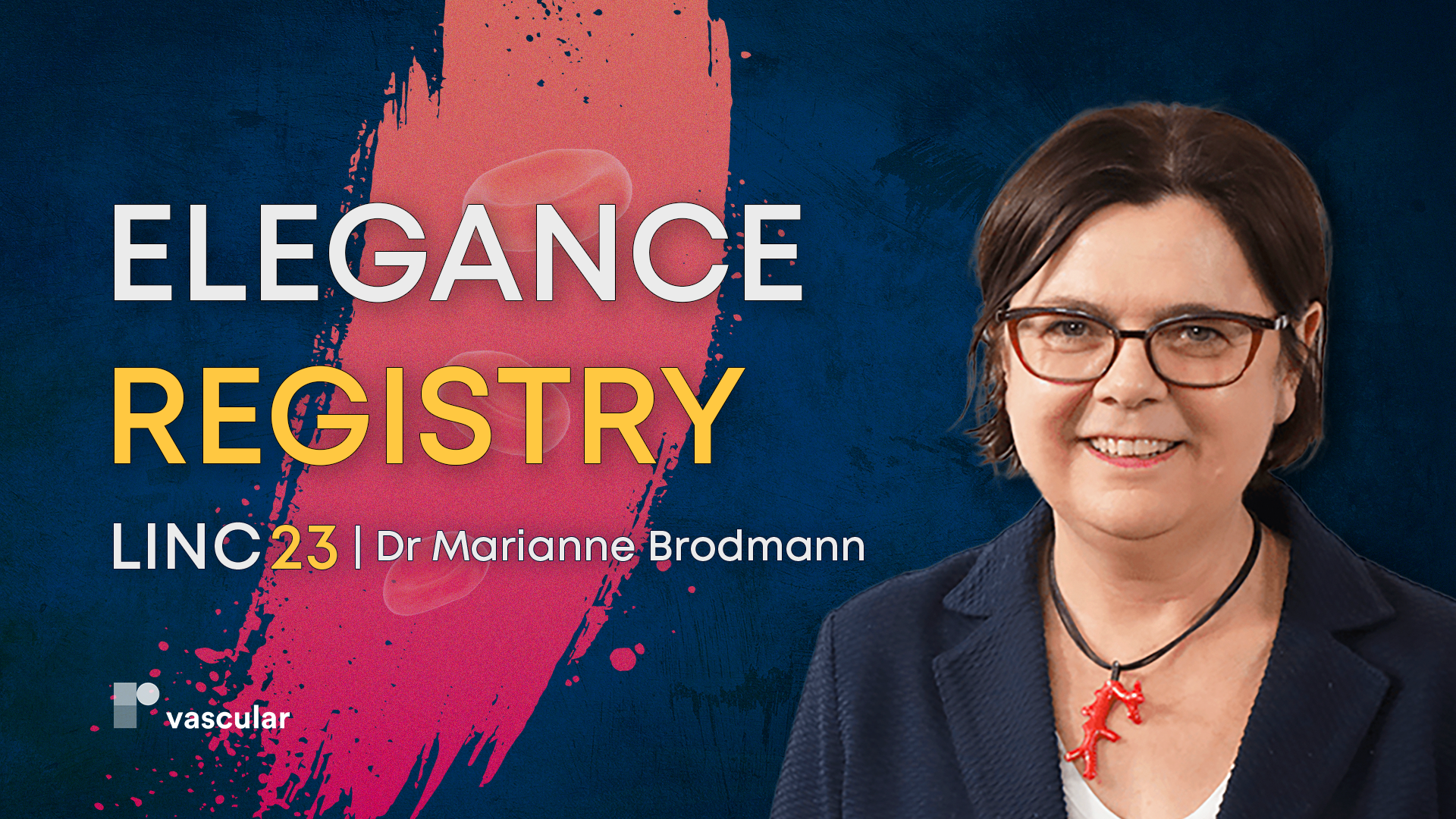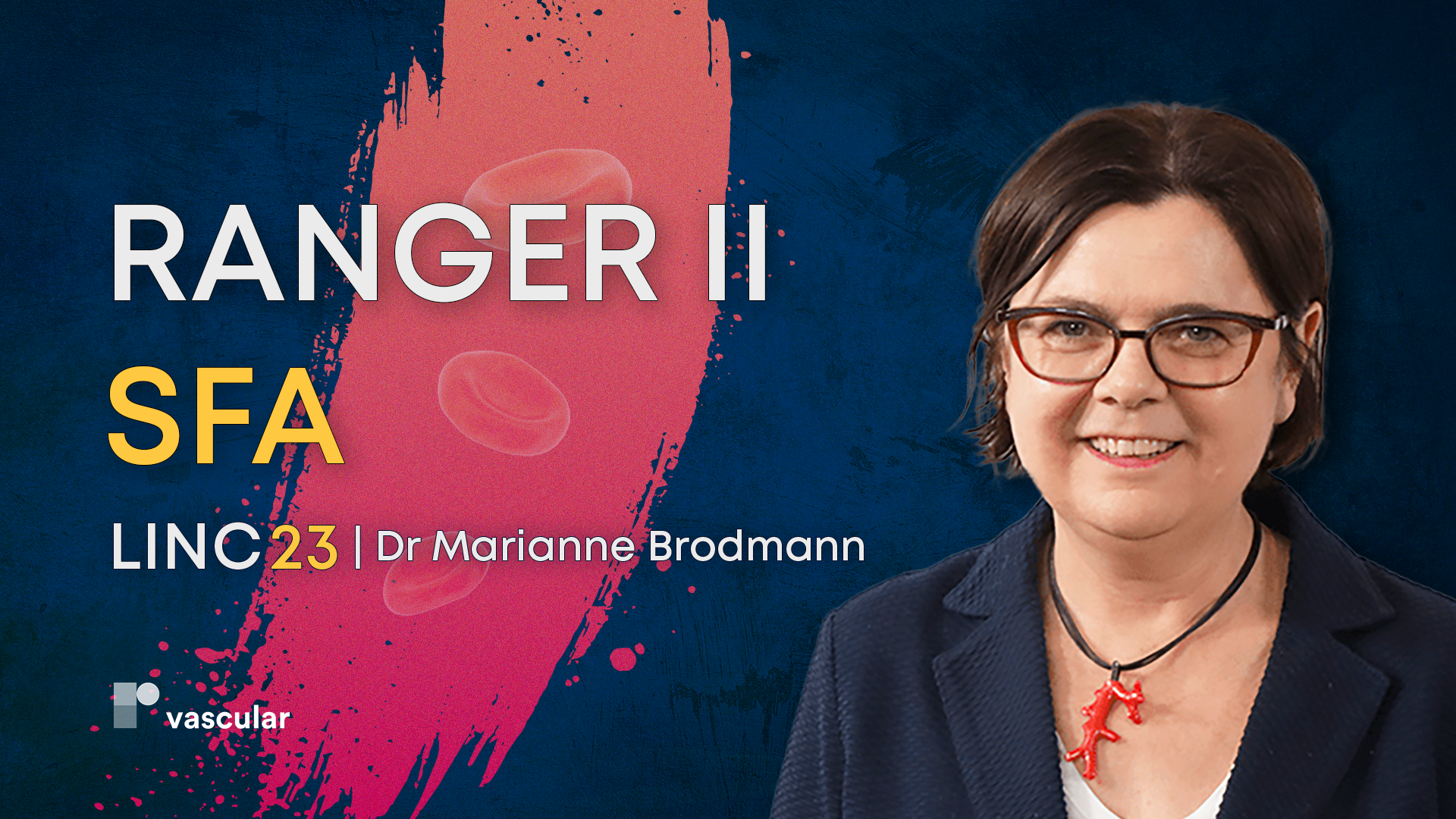LINC 2023: Late-breaking Science Video Collection
Published: 20 June 2023
-
Views:
 954
954
-
Likes:
 7
7
-
Views:
 954
954
-
Likes:
 7
7
-
 Up Next
Up Next -
 5m 18sPart 1 | Session 2 The ELEGANCE Registry: Ranger DCB In Under-Represented Groups
5m 18sPart 1 | Session 2 The ELEGANCE Registry: Ranger DCB In Under-Represented Groups -
 4m 51sPart 1 | Session 3 RANGER II SFA: 3 Year Patency and 4 Year Clinical Safety
4m 51sPart 1 | Session 3 RANGER II SFA: 3 Year Patency and 4 Year Clinical Safety -
 4m 48sPart 1 | Session 4 IN.PACT AV ACCESS: Outcomes to Date
4m 48sPart 1 | Session 4 IN.PACT AV ACCESS: Outcomes to Date -
 8m 14sPart 1 | Session 5 TINTIN: Combination DCB and Bare Metal Stents In PAD: 4 Year Outcomes
8m 14sPart 1 | Session 5 TINTIN: Combination DCB and Bare Metal Stents In PAD: 4 Year Outcomes -
 7m 13sPart 1 | Session 6 POPCORN Registry: DCB Treatment for Peripheral Artery Disease
7m 13sPart 1 | Session 6 POPCORN Registry: DCB Treatment for Peripheral Artery Disease -
 3m 49sPart 1 | Session 7 MOTIV Bioresorbable Scaffold in BTK Lesions
3m 49sPart 1 | Session 7 MOTIV Bioresorbable Scaffold in BTK Lesions -
 6m 6sPart 1 | Session 8 Improving Clinical Outcomes in Infrapopliteal Lesions With Cre8™ BTK
6m 6sPart 1 | Session 8 Improving Clinical Outcomes in Infrapopliteal Lesions With Cre8™ BTK -
 8m 56sPart 1 | Session 9 LIFE-BTK: Esprit BTK System in Narrowed Infrapopliteal Lesions
8m 56sPart 1 | Session 9 LIFE-BTK: Esprit BTK System in Narrowed Infrapopliteal Lesions
Overview
Short, accessible Expert Interviews will be available with select faculty focusing on the results, applicability, and impact on future research.
More from this programme
Part 1
Expert Interviews
Short, accessible Expert Interviews with select faculty focusing on the results, applicability, and impact on future research.
About the episode
LINC 23 - Dr Scott Trerotola (Penn Medicine, Philadelphia, PA, US) joins us to discuss the interim findings of the AVPAS Lutonix drug-coated balloon post-approval study.
The Lutonix 035 drug-coated balloon PTA catheter is a low-profile DCB designed to address de novo, restenotic or in-stent restenotic lesions in the superficial femoral and popliteal arteries. Dr Trerotola provides an insight into a prospective, global, multicenter post-approval study into the clinical use and safety of the Lutonix PTA catheter in patients with arteriovenous fistulae in the upper extremity.
Results suggest that this planned interim analysis of 81 patients shows a 6-month target lesion primary patency of 77.6%.
Questions:
- What is the reasoning behind this post-approval study?
- Tell us about the Lutonix PTA Catheter and its unique features.
- What were the study design and patient population?
- What were the key findings revealed at LINC 23?
- How should these findings impact clinical practice and future research?
- What further study is needed?
Recorded remotely from Philadelphia, 2023.
Interviewer: Jordan Rance
Video Specialist: Oliver Miles







Comments